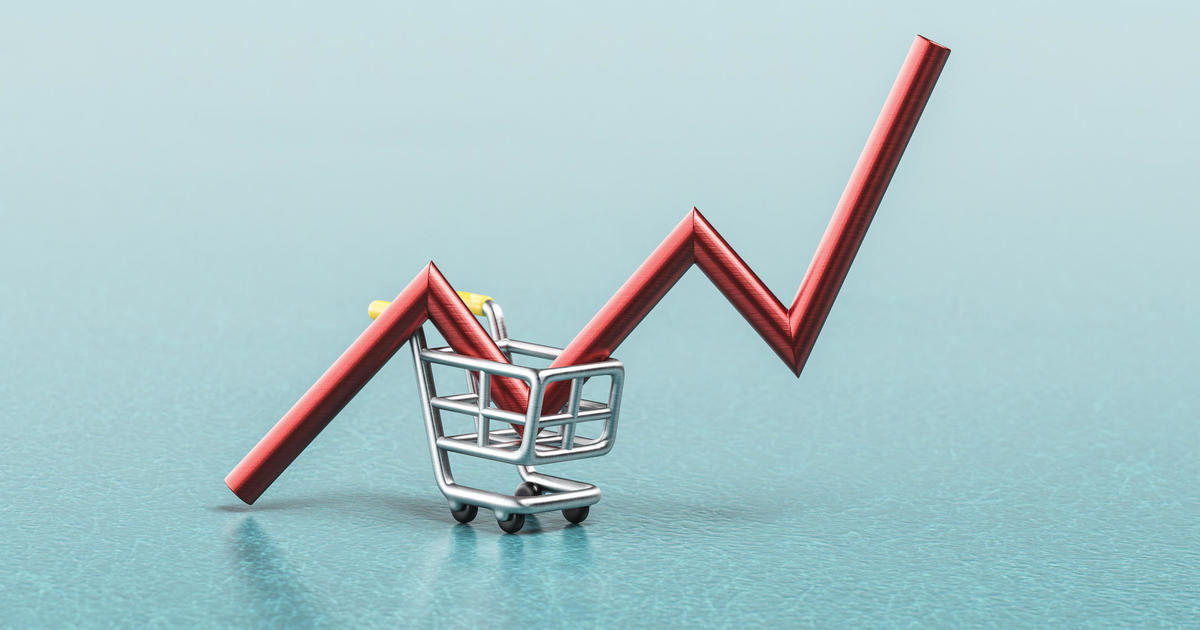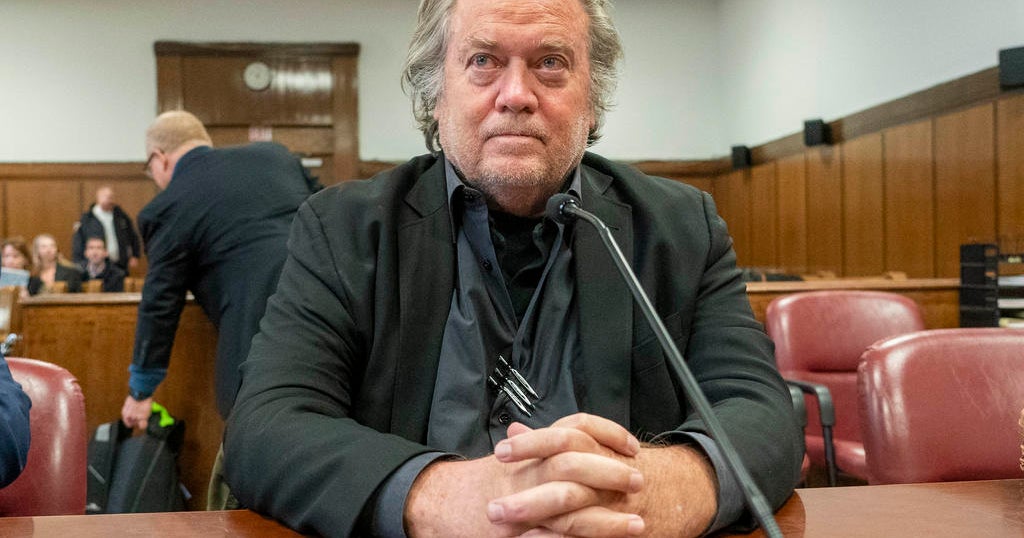Transcript: Betsey Stevenson on "Face the Nation," Oct. 16, 2022
The following is a transcript of an interview with Betsey Stevenson, professor of Economics and Public Policy at the University of Michigan, that aired Sunday, Oct. 16, 2022, on "Face the Nation."
MARGARET BRENNAN: We go now to University of Michigan Professor Betsey Stevenson, who previously served as the Department of Labor's chief economist under former President Obama. Good morning to you, Betsy, good to have you on the program. I want to get straight to it. Last week one of the top Fed officials, Loretta Mester, said inflation has not yet peaked, how much worse will it get in your view?
PROFESSOR BETSEY STEVENSON: Well I- you know it is hard to know how much worse it will get because what people really care a lot about is like energy prices, where things are really volatile. I think the thing that economists are really worried about is when we strip out those volatile food and energy prices and we look underneath that core inflation, that's the stuff that's hard to bring down. And when that hit, you know, 6.6% I think that made people very worried about how long that will last. And you know some of this, because we're gonna see housing prices, rental prices continue to go up because a lot of the values of the homes that are already out there are up and that hasn't filtered through into CPI. And then there are people out there who really their wages are so far below, in real terms where they were that they're clamoring for a raise. And I think that those are the folks who aren't ready to say, you know, I'm going to keep working at my current nominal wage. So I think that's the kind of risk that we're facing right now is we're gonna see these increased wage pressure. That's gonna keep pushing- pushing prices up. I don't think we have to worry though that it's going to go much above where it currently is, which is that sort of 6.6% as the core underlying inflation, we got to be worried that it's (unintelligible).
MARGARET BRENNAN: Well, there are plenty of people worried based on our CBS News polling 70% of voters believe the national economy is bad. 53% say their personal financial situation is good. So there's that. But a large part of the economy is consumer psychology here and what the consumer actually does. And the perception is not that the economy is strong as hell, as the President said, but that these pricing pressures are hurting.
STEVENSON: You know it's such a weird time because we have a record number of job opportunities out there. I mean, it is a great time to look for a new job, to take a new job, and the people who are doing that are getting very large wage increases and are being made better off. And hiring is just continuing, you know, at this really high rate. So if you're thinking about finding work, changing jobs, better using your skills, it's a great economy, if you just want to stay where you're at, and keep buying the stuff you are buying, you're struggling, because you're seeing food prices are up, you're seeing medical costs going up, everything around you is going up a little bit. And if your boss doesn't want to give you a raise, you can't- you know you can't make ends meet.
MARGARET BRENNAN: Well one of the areas that I know you've focused on and we want to talk about is the child care and caregiver shortage. That's one area of the economy where the Bureau of Labor Statistics says there are 100,000 fewer child care workers now than there were before the pandemic. Where did they go? What- what is going on?
STEVENSON: Okay, well, one thing is that we are missing a lot of foreign born women. I mean, and so that makes us confront the reality, which is, immigrant women provide a lot of child care in this economy, and they left. So we just have fewer immigrant women. So that's a direct answer to your question where did people go? I think what's making everybody really feel the pinch is, you know, the labor supply of parents- parents, you know, the share of parents who are in the labor force, both mothers and fathers, has returned to where it was pre-pandemic. But as you just said, we're missing child care workers. So no wonder parents feel like they're struggling, because now they're trying to do it with less formal care. And I think that, you know, that is causing a lot of stress. And they're- that, that problem is getting worse. Because, look, the median wage of a child care worker is still $12 an hour so you can do better going to McDonald's, Starbucks, Target, there's a lot of jobs out there, that's gonna pay you more than $12 an hour. And that's making it harder to hire child care workers. It's why in the last jobs month's report, we saw a decline in the number of child care workers when other things are continuing to grow. But if we pay child care workers more, where's that going to come from? That's going to mean increase in the price of child care services. And now we get back to inflation.
MARGARET BRENNAN: Well, and–
STEVENSON: You know, the real- Yeah, go ahead Margaret.
MARGARET BRENNAN: And we also have teacher shortages around the country. I mean, what are you seeing in terms of female employment and the return to the workforce? Isn't that still a big problem?
STEVENSON: You know, actually prime age women are back so that's our 25 to 54 year old, so they're you know not- we sort of focus on that age because they're not in school, they're not retired. That age group is back. The problem we had, you know, with teachers, with airline pilots, with a lot of jobs is that people retired early. So we're missing our sort of most skilled older workers, and that's causing some problems. And then on the other end, we didn't train a lot of people in jobs during the pandemic. We didn't have those student teachers in the classroom in 2020 and 2021. Until we are not training young ones, the older ones are retiring early, and then all the burden is falling on these, you know, sort of middle aged teachers, pilots, all sorts of jobs like that. And it's, you know, making the job worse, which is putting again sort of upward, you know, wage pressure, which is leading to inflation. You know, the thing is, people are very upset about inflation, and they feel awful about it. But the reality is that inflation hurts some people more than others. It's not- it's a generalized increase in prices, but not all prices are, you know, raising the same amount. So we've got child care workers, where the price- child care hasn't gone up to keep up with inflation. And so that's hurting people in the child care industry. And the result is we have fewer people working in child care. But we got parents, on the other hand, who can't really afford to pay more for child care because they couldn't afford to pay for child care before we had inflation. And that brings us back to needing a government solution to help ensure that all families can afford high quality child care.
MARGARET BRENNAN: And that's why the next Congress is going to matter so much. And Betsey, thank you so much for talking to us about what you're seeing out there. We will take a break and be more- back with more Face the Nation so stay with us.



